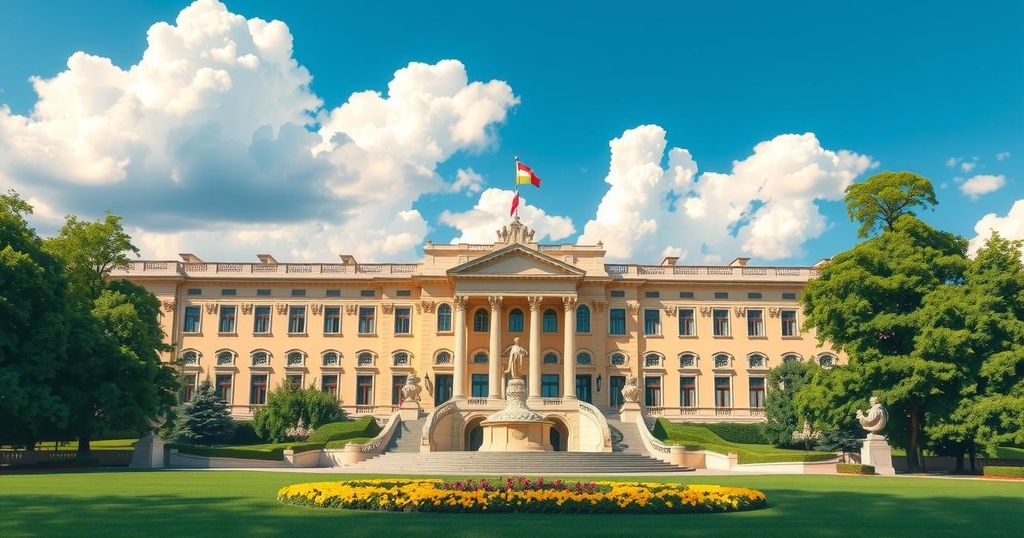The Implications of Recapturing the Presidential Palace on the Sudanese Conflict

The Sudanese Armed Forces have recaptured the presidential palace, marking a significant development in their struggle against the Rapid Support Forces. This victory could alter the dynamics of the conflict, but severe humanitarian issues continue to plague Sudan, with both factions accused of war crimes and obstructing aid. Full control over Khartoum could provide momentum for SAF, yet the war’s resolution remains uncertain, as negotiations for peace have stalled.
The recapture of the presidential palace in Khartoum by Sudan’s Armed Forces (SAF) marks a notable development amidst a prolonged conflict with the paramilitary Rapid Support Forces (RSF). Over the past two years, the SAF fought to regain control after initially losing the capital. They now see this victory as critical, stating it signifies potential success in reclaiming the entire capital. However, the outcome of the broader war remains uncertain, as numerous challenges persist.
The presidential palace, including the historic Republican Palace, represents a vital symbol for the military-led government which portrays itself as the legitimate authority against a so-called “terrorist militia.” This strategic gain for the SAF comes after their clearance of outer districts surrounding Khartoum and reclaiming key city center areas from the RSF, although RSF forces still remain scattered in the capital.
Despite the SAF’s advances, ongoing fierce combat is expected as they attempt to encircle remaining RSF units. The RSF, led by General Mohamed Hamdan Dagalo, also known as Hemedti, has displayed resilience, evidenced by recent strikes such as a drone attack on the palace that caused casualties. Control over Khartoum could shift the war’s trajectory or consolidate the current territorial divisions.
The power dynamics between General Hemedti and army chief General Abdel Fattah al-Burhan have escalated, moving from collaborative efforts to a violent struggle for dominance, following a coup in April 2023. Should the SAF gain full control over Khartoum, it might bolster their aim to challenge the RSF in the Darfur region, particularly around El Fasher, where the RSF has maintained a siege.
Caution is advised, as analysts warn of a potential de-facto partition of Sudan, establishing entrenched zones of influence for both factions. The RSF is attempting to establish a parallel governance structure in regions it holds, signaling its ambition to remain a formidable entity despite battlefield challenges.
The humanitarian situation in Sudan is dire, with the United Nations labeling it as the world’s most severe crisis. Millions are displaced, facing acute food shortages and impending famine, particularly in Khartoum where aid access remains obstructed. Thus, even a power realignment in the capital may not radically improve humanitarian conditions for the populace.
Ultimately, both factions have been implicated in obstructing emergency aid, weaponizing it in their conflict, and accusations of war crimes have been directed at both, with the RSF facing severe allegations. Although reclaiming the Presidential Palace may serve as a platform for further military action, experts suggest that no side is likely to achieve decisive control over Sudan, emphasizing the deadlock in ongoing peace negotiations.
In summary, the recapture of the presidential palace signifies a crucial advance for the Sudanese Armed Forces amidst an ongoing and complex civil war. While the SAF’s victory could influence the dynamics within Khartoum and potentially challenge the RSF in regions like Darfur, significant humanitarian crises persist. As both sides remain entrenched in their positions, the future of Sudan remains uncertain, with the potential for a de-facto partition looms large as neither faction appears capable of securing complete control.
Original Source: www.bbc.com







